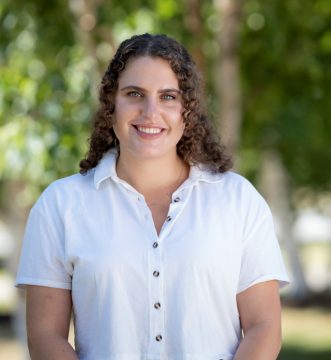Nicole Rapfogel, MPH ’24, a Master of Public Health student at Dartmouth’s Geisel School of Medicine, has been selected as a Finalist for the Presidential Management Fellowship (PMF) program. She is the only candidate at Dartmouth to receive this recognition for 2024.
Established more than four decades ago with the goal of recruiting and developing a cadre of future governmental leaders from all segments of society—the PMF program is the federal government’s flagship leadership program for advanced degree holders across all academic disciplines.

Eligible individuals apply to be selected as Finalists, then have 12 months to secure an appointment as a Fellow, which is a two-year, full-time, paid fellowship at a federal agency. Administered by the U.S. Office of Personnel Management, the PMF program received nearly 7,200 applications this year, selecting 825 applicants as Finalists. The 2024 pool of Finalists represent 102 academic degree programs from 264 academic institutions worldwide.
“I was very excited to hear that I’d been selected as a Finalist,” says Rapfogel. “It’s a great opportunity to be part of the federal government, applying a lot of what I’ve learned in the MPH program, and to make change happen at the federal level with an eye towards public health and health equity.”
As a policy analyst for the Center for American Progress, a Washington, DC-based think tank, Rapfogel is currently focused on areas such as Medicare drug pricing, anti-competitive practices, affordability, and access to healthcare services.
“My work involves crafting a lot of white papers,” she explains, “around understanding a healthcare problem, researching the landscape of what’s been proposed, looking at what may or may not have worked and what experts say, and then compiling policy recommendations for local, state, and federal policy makers to do something about these identified problems.”
Rapfogel hopes to apply her skills and experience at a participating federal agency within the Department of Health and Human Services. “There are a lot of details that go into federal policy making and I’ve been analyzing them from a non-governmental point of view,” she says. “Thinking about my career in health policy, it will be really useful to understand how the federal government functions and what needs to happen internally to make change.”
As she prepares to graduate from the MPH program this spring, Rapfogel is grateful for the rich, diverse learning environment that the Dartmouth curriculum has provided. “I think one of the real strengths of the MPH program is it brings in people from so many different disciplines and career paths,” she says.
“To hear my classmate’s perspectives on their experiences in different parts of the healthcare sector has really helped inform my policy work and make sure it’s actually helping the people that I’m hoping to help.”